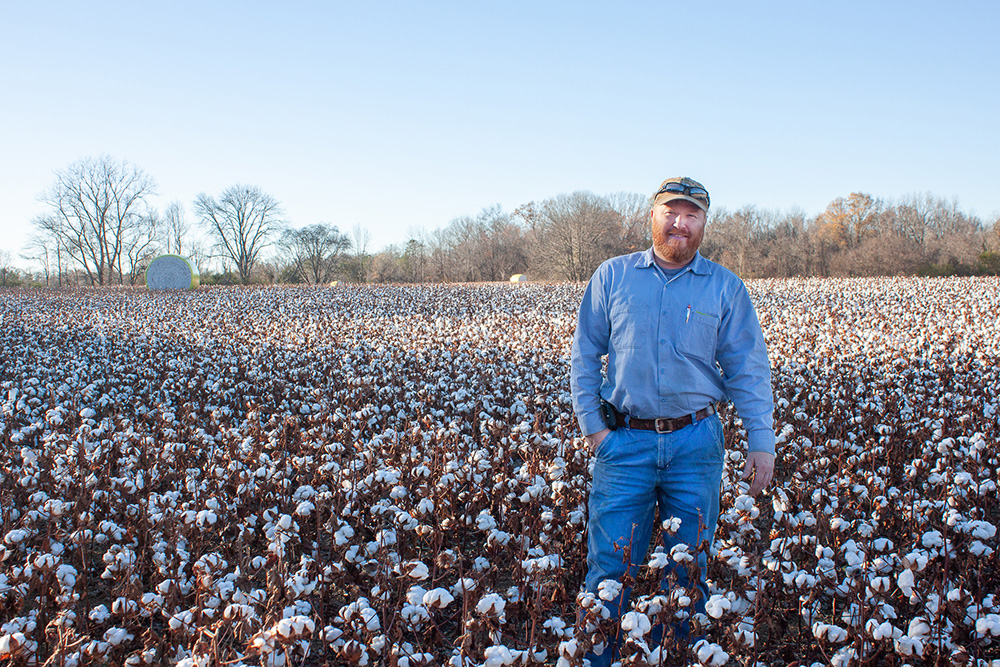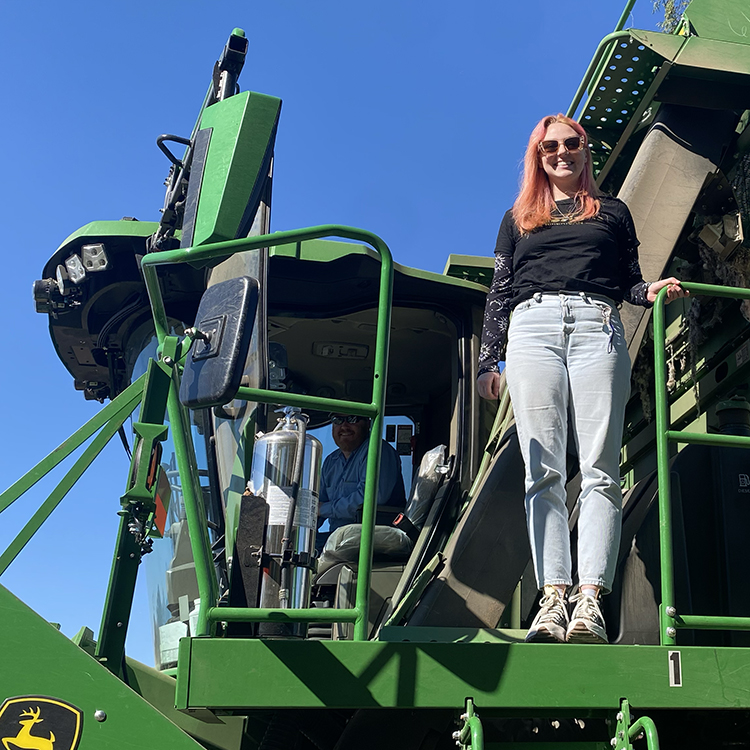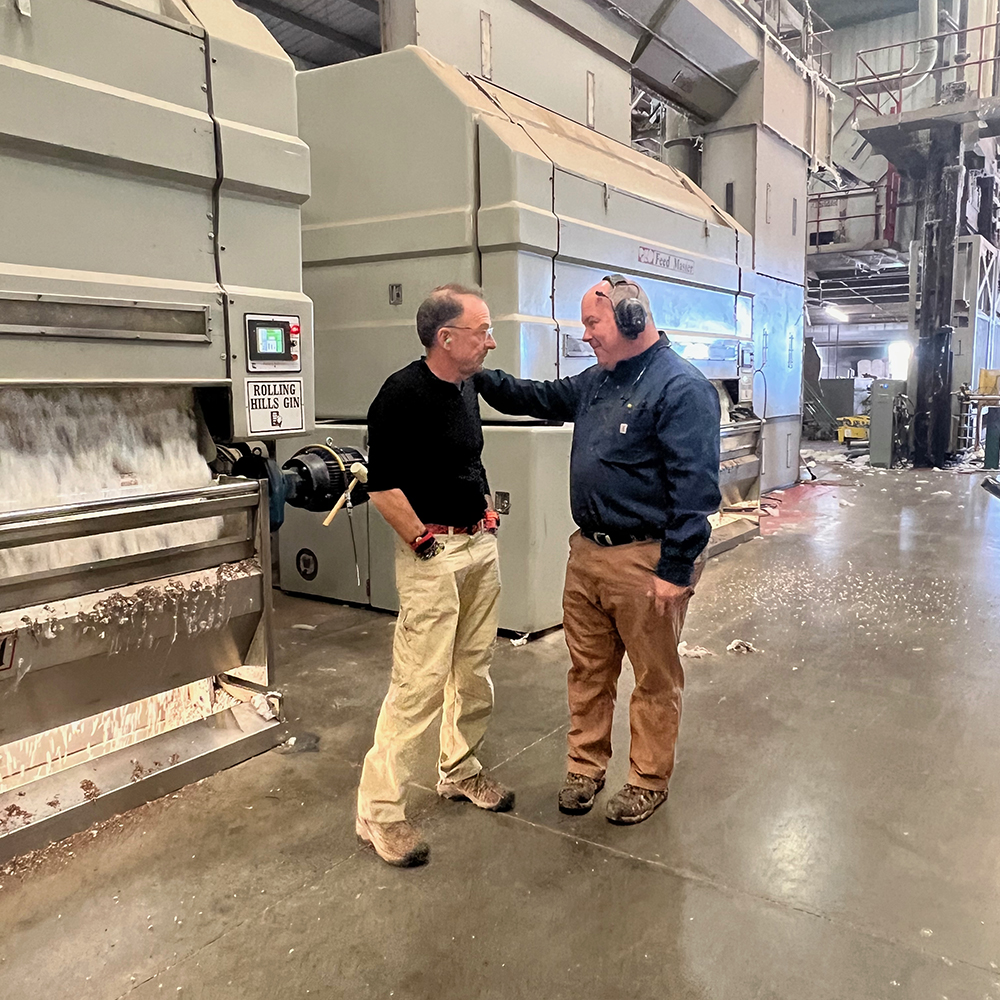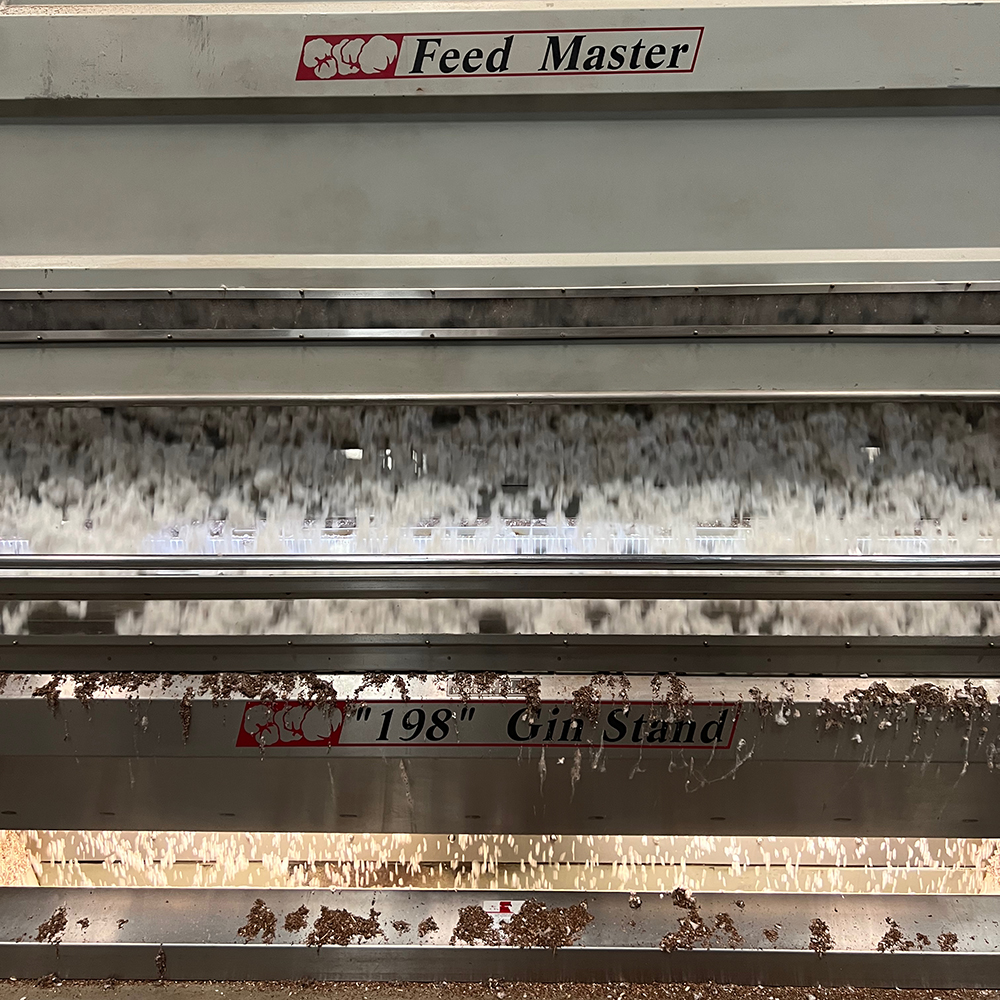
Cotton farmer Andrew Burleson who supplies TS Designs with cotton, standing in one of his cotton fields on a harvesting day.
Empty Promises of the “Made in…” Label
Growing up in the era of fast fashion, I rarely wondered about the origins of my clothing.
While I was aware that my garments likely came from overseas and were made by workers potentially facing unfair conditions, the allure of an entire wardrobe at the cost of a few sustainably sourced pieces kept me complacent. Last-minute garments for events, a new summer wardrobe every year, and simple impulse purchases were just a click away.
My perspective shifted dramatically when I got the opportunity to meet Eric Henry, president of TS Designs. It was an unbelievable discovery to find out that there is a company in my home state that is a leader for positive change in the apparel industry.
Working here has exposed me to the harsh reality of why TS Designs works so hard to make a change. And it has helped me realize that there is no justifiable reason for me to contribute to a fast fashion system that perpetuates the flaws in our apparel industry.
TS Designs cares deeply about changing the narrative of the entire apparel industry.
Thurman Burleson and Sons Farm
Recently, I had the opportunity to meet Andrew Burleson our cotton farmer, and Wes Morgan our ginner, who grow and process the cotton for our shirts, which is an experience available to anyone who tracks our supply chain. Words fail to convey the emotions of being there and getting to connect with the people who make what we do possible.
I got to ride in the cotton harvester alongside Andrew, the farmer who grew the cotton for the shirt I was wearing. Getting to have conversations about his life, and how important farming is to him was extremely eye-opening.

Rolling Hills Gin
We also visited Rolling Hills Gin, and witnessed the cotton gin, which is the machine that quickly and easily separates cotton fibers from their seeds.
I was excited to know that one day that cotton would potentially be turned into a shirt that I would handle.
Yet, a sense of sorrow lingered, because while a small percentage of the cotton I saw that day, would remain within a couple of hundred miles to make our t-shirts, the majority would travel across the globe, handled by individuals we would never meet.


Eric Henry and owner Wes Morgan, chatting above the loud roar of the cotton gin.
Typical Supply Chain
Most brands prefer to keep their supply chains veiled, seeking the cheapest labor and materials without concerning themselves with the human cost—be it child labor or modern-day slavery.
When we distance ourselves from our clothes, it’s easy to forget that real individuals somewhere are investing hard work to create these items.
The “Made in…” label merely leaves us unaware of the intricate journey behind our garments. I have come to understand the power of a transparent supply chain.
WhereYourClothing.com
Initially, when I learned about Where Your Clothing, the supply chain tracking website created by TS Designs, the idea sounded unbelievable to me.
You can scan a QR code in your shirt to find the names and contacts of every person involved in creating your shirt.
It should not be shocking to know who made the clothes we wear every day; this should be a global standard.
Currently, 98% of apparel sold in the United States is manufactured overseas. While sourcing materials globally isn’t inherently negative, the question arises: Why grow cotton here only to ship it across the world and back? Why not keep it local?
We cannot sustain a lifestyle where overconsumption is the norm. And I get it, fashion is fantastic. Being able to express yourself through clothes is a creative outlet, but that does not mean we need to have overflowing closets.
If we truly care so much about fashion, why do we not educate ourselves on companies committed to ethical practices? We have to start investing in products designed to last a lifetime. Recently, I met someone who has been wearing one of our shirts for fourteen years— and that’s a testament to slow fashion.
Staggering Statistics of Mindless Consumption
Up to 30% of manufactured clothes never reach the market . Excess inventory, unsold at the end of a quarter, ends up in landfills or being burned. Shockingly, even donating to second-hand stores is not a guaranteed solution; 90% of clothes donated to such stores ultimately find their way to landfills. (source)
Good On You, fashion’s most rigorous and comprehensive rating system, reveals that “86% of the world’s most profitable fashion brands either don’t disclose anything about living wages or are confirmed not to pay living wages at any stage of the supply chain.”
Not Just a Clothing Company, but a Catalyst for Change
Here at TS Designs, our supply chain stands in stark contrast to a typical supply chain. Our North Carolina t-shirt travels less than 700 miles, which is 97% less than the average t-shirt that travels well over 20,000 miles!
By promoting transparency, sustainable practices, and ethical considerations, we aim to revolutionize the apparel industry.
Let’s collectively strive for a future where conscious consumer choices, education, and a commitment to sustainability reshape the way we think about clothing.
Do Your Part and Shop Locally
TS Designs manufactures the highest quality printed t-shirts in a domestic, transparent, and trackable supply chain. We work with brands who want to provide their customers with responsibly made clothing that positively impacts people and the planet.

